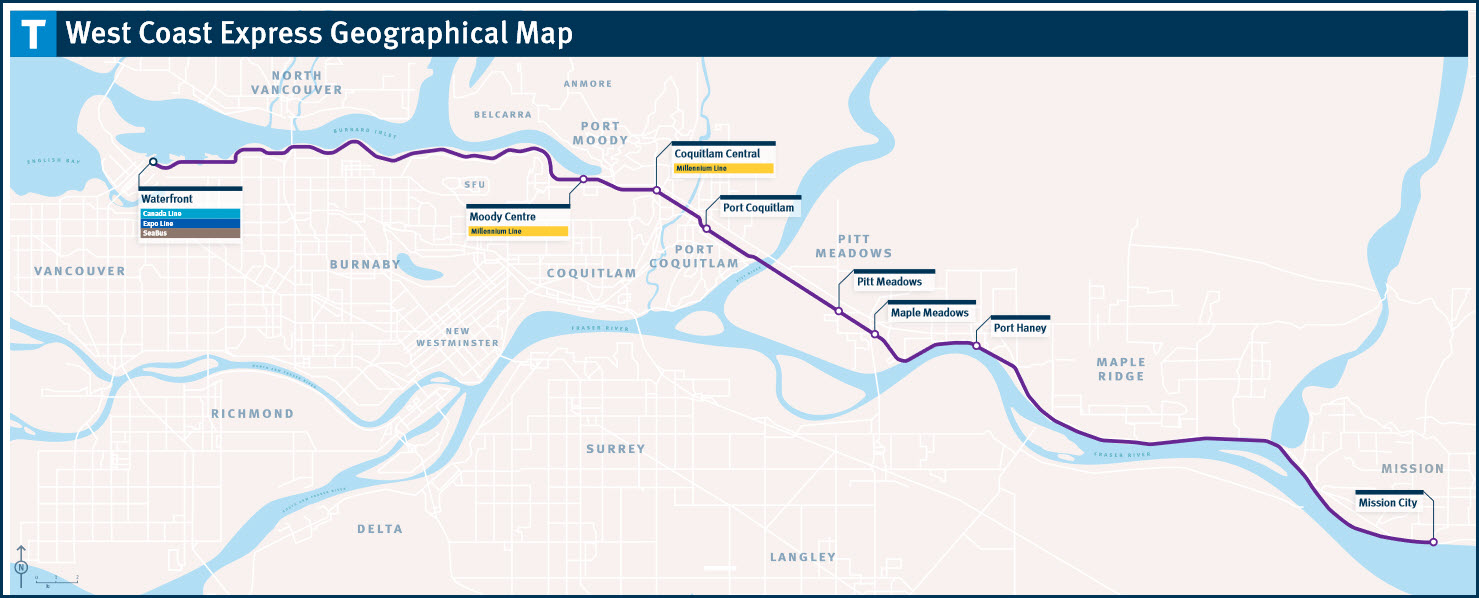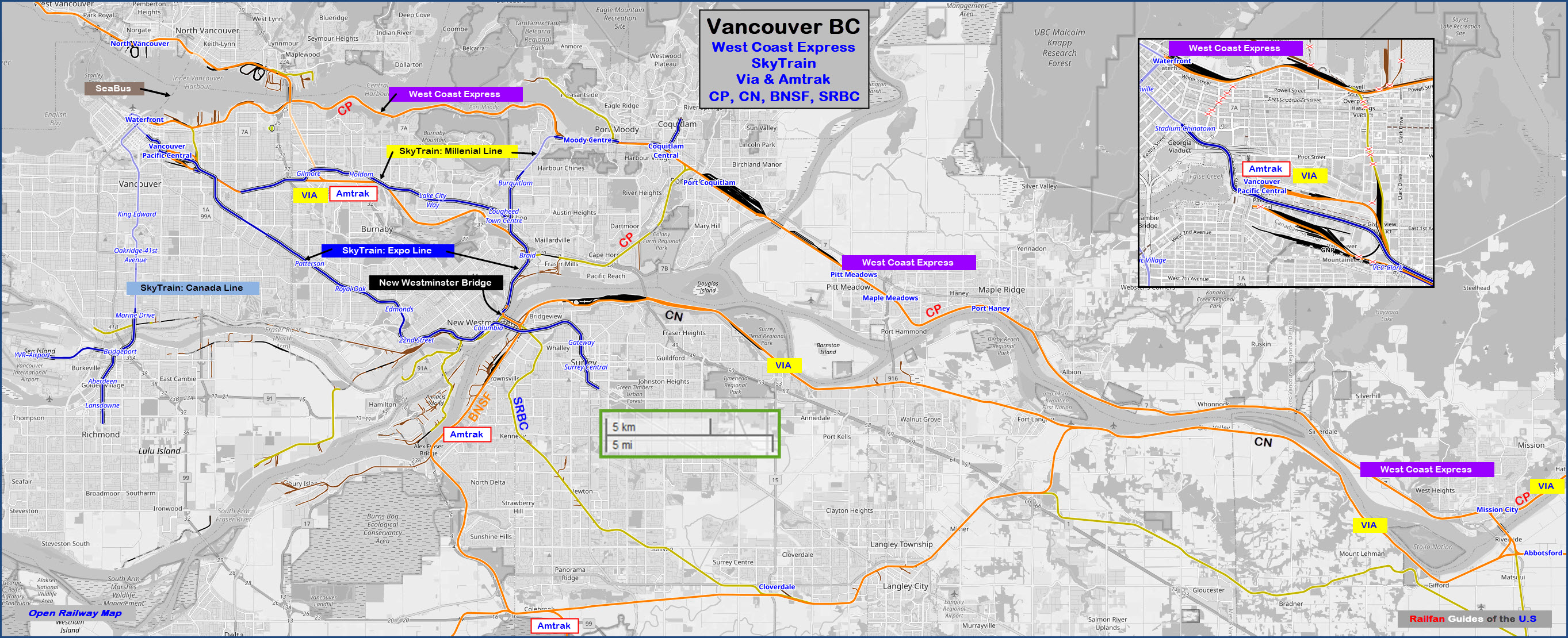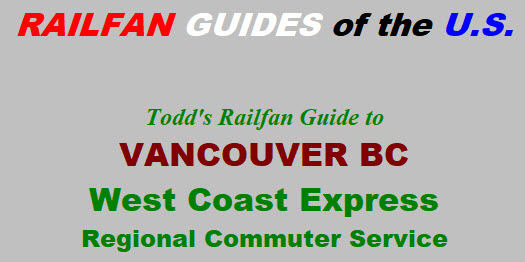
In General
Getting Here
Map
Station by Station
Pictures
Signals
Floobydust
RAILROAD SIGNALS HOME
Location / Name:
Vancouver BC
What's Here:
West Coast Express (Regional Commuter Rail)
Skytrain Rapid Transit System
Via
Amtrak
CP Rail
Canadian National
BNSF
Southern Railway of British Columbia
Waterfront Station (West Coast Express, SeaBus, Skytrain/2 lines)
Pacific Central Station (Via and Amtrak)
Data:
GPS Coordinates: as needed
Phone A/C: 604
ZIP: V6A 4C7 (at the Pacific Central Station)
Access by train/transit:
SkyTrain and SeaBus at the Waterfront station
Via and Amtrak after a 4 station ride on the SkyTrain Expo line
The Scoop:
West Coast Express (WCE) has been serving the lower mainland since November 1, 1995 and provides more than 2.8 million trips per year. Every weekday more than 11,000 customers get on and off WCE at one of eight stations going to/from downtown Vancouver and Mission.
Trains originate from the Waterfront Station in downtown Vancouver, making a direct connection to Via or Amtrak not possible without taking a ride on SkyTrain's EXPO line (a four station ride).
Whether you need to catch up on work, or catch a few Z’s – WCE makes your commute as comfortable as possible. Every car is equipped with a washroom and our trains and stations are fully accessible. We can accommodate wheelchairs and scooters onboard our trains. Bikes are welcome onboard. Most WCE stations have Park & Ride lots where you can pay at the machine, use the TransLink Park&Go App.
The West Coast Express runs along the Canadian Pacific RR tracks from Mission to Vancouver along a 69km (42.9mi) route. A one way trip takes approximately 1 hour, 13 minutes, not including station breaks.
From the Waterfront station to its first stop at Moody Centre, it follows the southern shore of the Vancouver Harbour. If you're riding the train, you have a nice waterfront view around Bates & Montrose Parks and

Next to the Trans-Canada Highway bridge over the harbour, is the Second Narrows Rail Bridge, a lift bridge that no longer carries any traffic because it doesn't connect to anything on it's south end.
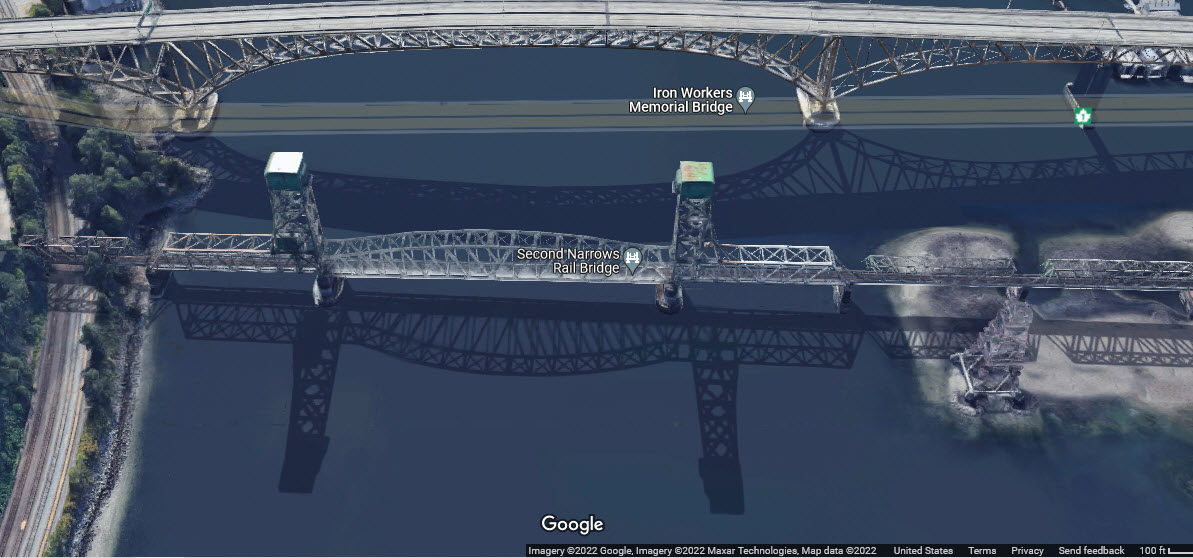
Half of the West Coast Express stations have a transit connection:
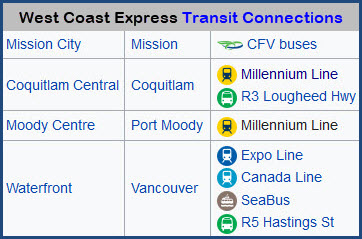
Details / Specifics:
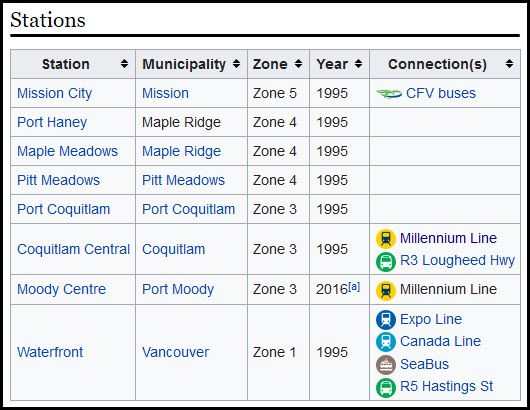
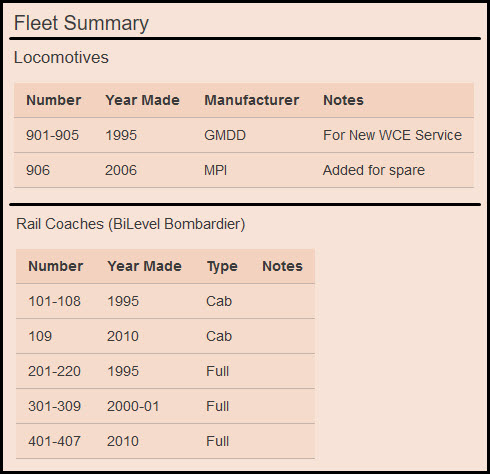
Acknowledgements:
Martin Parsons
Rick Horne
Denver Todd
Google Maps
Open Railway Map
Websites and other additional information sources of interest for the area:
https://en.wikipedia.org/wiki/West_Coast_Express
https://www.translink.ca/About-Us/Corporate-Overview/Operating-Companies/WCE.aspx
https://cptdb.ca/wiki/index.php/West_Coast_Express_906
https://canada.fandom.com/wiki/West_Coast_Express
https://www.abbynews.com/news/translink-ready-if-west-coast-express-affected-by-cp-rail-union-job-action/
https://en.wikipedia.org/wiki/Canadian_(train)
Since this line is a "long one", it is probably best to use your GPS or a good map.
Waterfront Station / Vancouver BC
GPS Coordinates: 49.
601 W Cordova St, Vancouver BC, V6B 1G1
https://en.wikipedia.org/wiki/Waterfront_station_(Vancouver)
From Wikipedia: Waterfront station was built by the Canadian Pacific Railway (CPR) and opened on August 1, 1914. It was the Pacific terminus for the CPR's transcontinental passenger trains to Montreal, Quebec, and Toronto, Ontario. The current station is the third CPR station. The previous CPR station was located one block west, at the foot of Granville and, unlike the current classical-styled Waterfront station, was built in "railway gothic" like the CPR's many railway hotels.
In 1978, when Via Rail took over the passenger operations of the CPR and the Canadian National Railway, it continued using both railways' stations in Vancouver, but a year later, Via consolidated its Vancouver operations at Pacific Central Station, the CN station near False Creek, and ceased using the CPR station. The last scheduled Via passenger train to use Waterfront station departed on October 27, 1979.
Waterfront station's transformation into a public intermodal transit facility began in 1977. That year, the SeaBus began operating out of a purpose-built floating pier that was connected to the main terminal building via an overhead walkway above the CPR tracks. The CPR's passenger platform and some of its tracks were torn up in the early 1980s to make way for the guideway of the original SkyTrain line (Expo Line), which opened on December 11, 1985. During Expo 86, SkyTrain operated special shuttle trains between Waterfront station and Stadium–Chinatown station (then named Stadium station), connecting the Canadian Pavilion at Canada Place to the main Expo site along False Creek.
In 1995, platforms were built adjacent to the SkyTrain station for the West Coast Express, which uses the existing CPR tracks. The platforms for the West Coast Express were built in the same location as the old CPR platforms.
In 2002, Millennium Line trains began to share tracks with the Expo Line at Waterfront station. The lines continued to share tracks until late 2016, when an Expo Line branch to Production Way–University station was created in replacement of the Millennium Line service between VCC–Clark and Waterfront stations.
In 2009, the Canada Line opened with separate platforms which are accessible via the main station building, but require leaving the fare-paid zone when transferring between other modes. Waterfront station serves as a common terminus point for both the Expo Line and the Canada Line. end Wiki
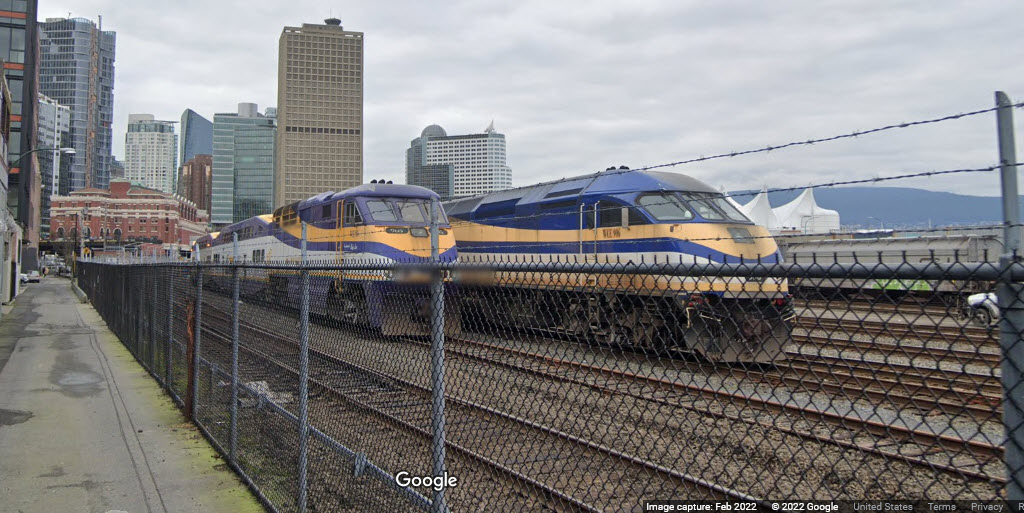
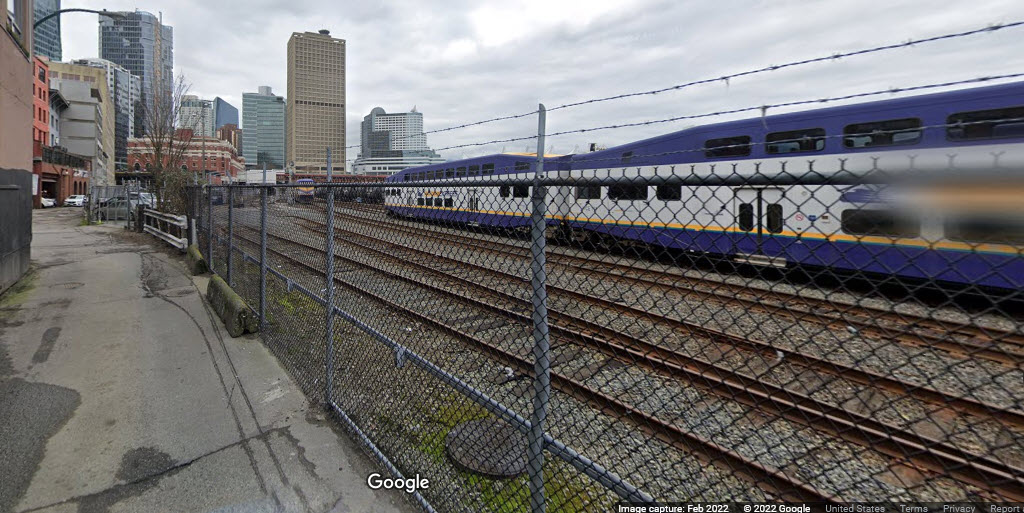
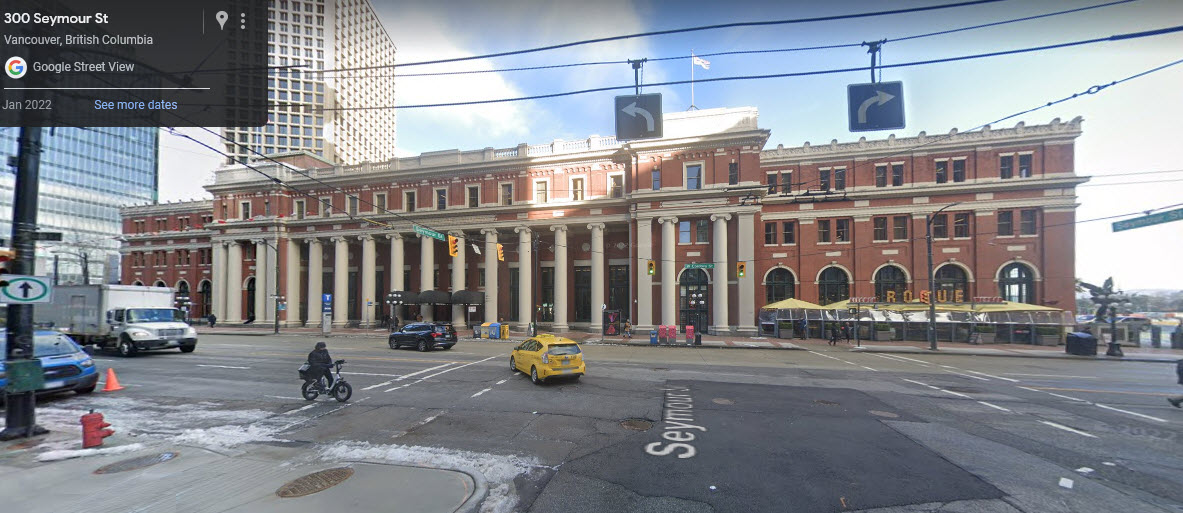
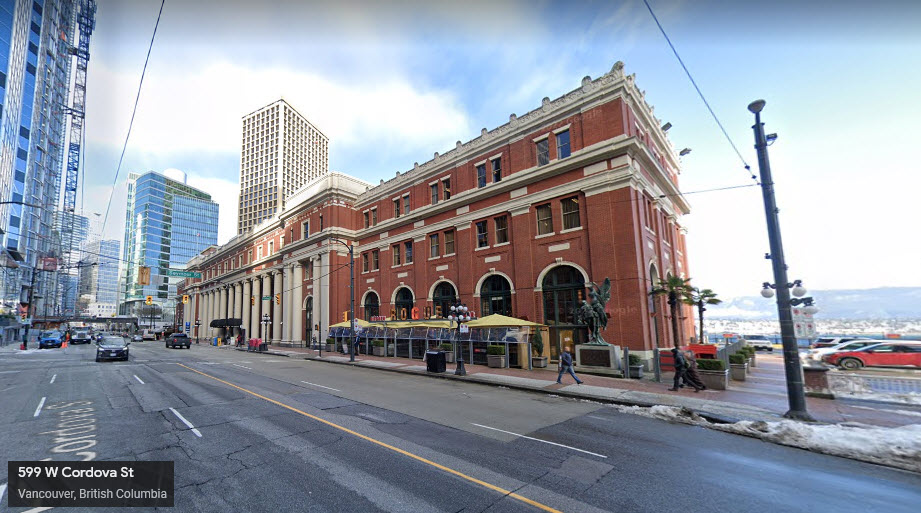
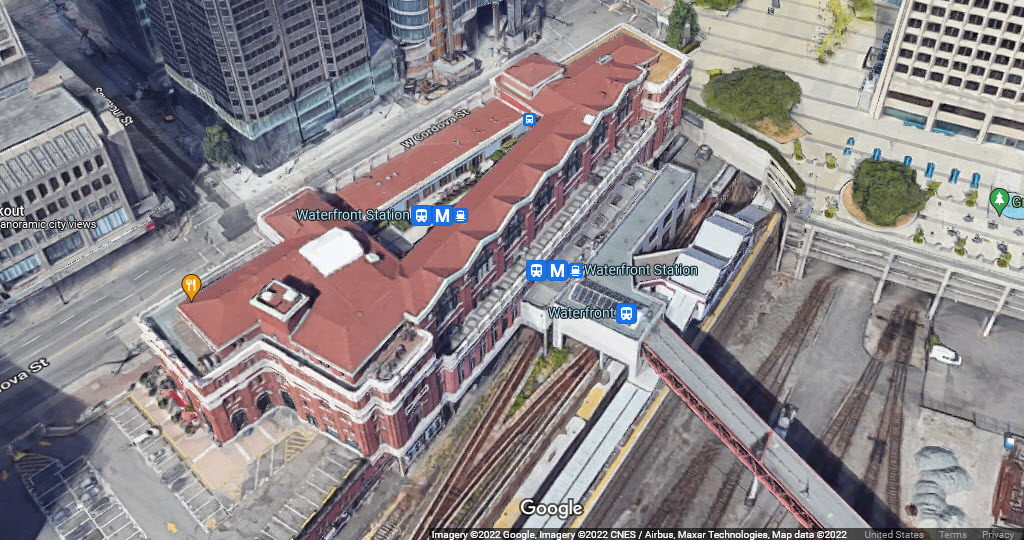
Moody Centre / Port Moody BC
GPS Coordinates: 49.27812, -122.84715
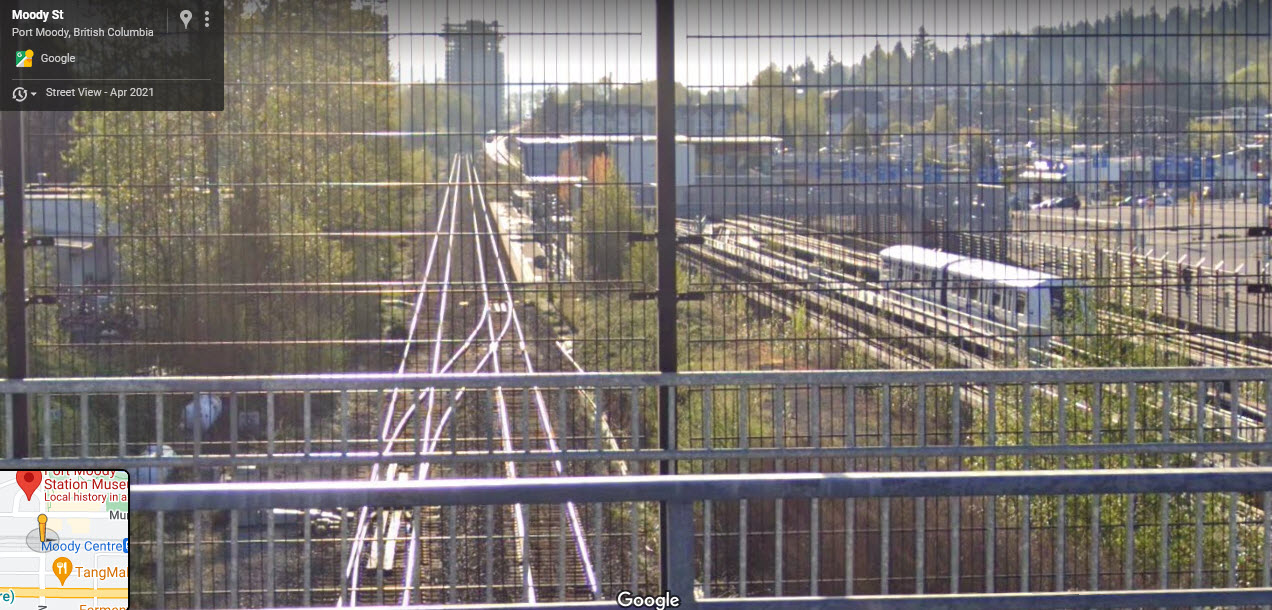
Coquitlam Central / Coquitlam BC
GPS Coordinates: 49.
Port Coquitlan / Port Coquitlan BC
GPS Coordinates: 49.
Pitt Meadows / Pitt Meadows BC
GPS Coordinates: 49.
Maple Meadows / Maple Ridge BC
GPS Coordinates: 49.
Port Haney / Maple Ridge BC
GPS Coordinates: 49.
Mission City / Mission BC
GPS Coordinates: 49.
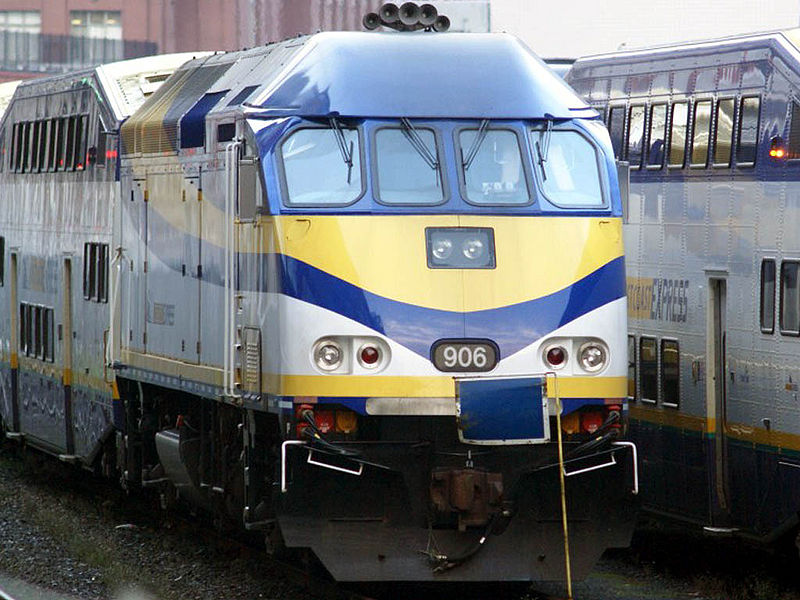
West Coast Express MPI-built MP36PH-3C 906 at Vancouver's Waterfront Station, 2NOV2007, photo by Martin Parsons
Looks like most, if not all of the signals on the line are still GRS searchlight signals.
Notice in the Waterfront station area, the backgrounds have been trimmed because of close clearances.
GPS Coordinates: 49.28474, -123.10823
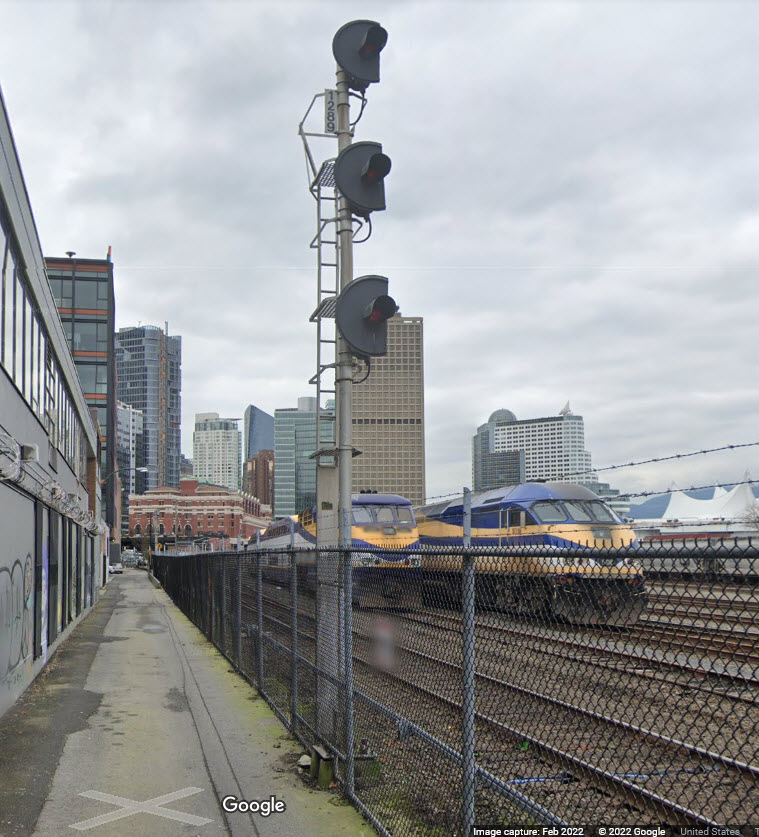
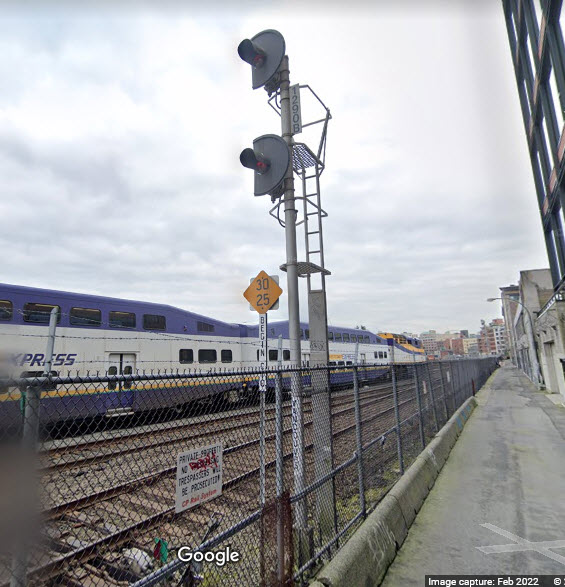
GPS Coordinates:
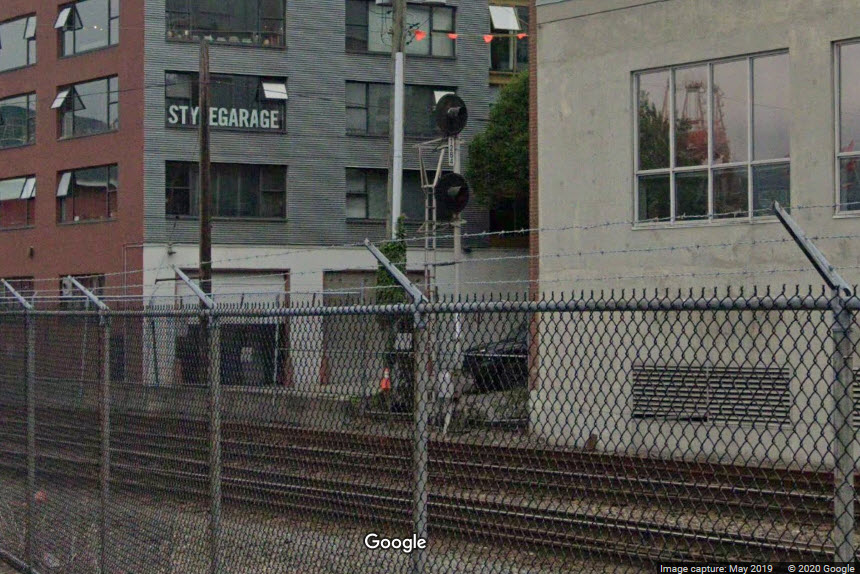
GPS Coordinates:
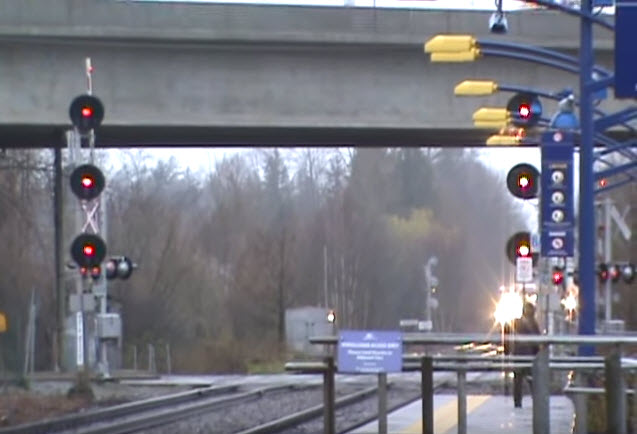
CP Rail's Port Moody Station. Built circa 1907 and in use until 1971. Purchased in 1978 by the Port Moody Heritage Society and moved to a new location on Murray Street.
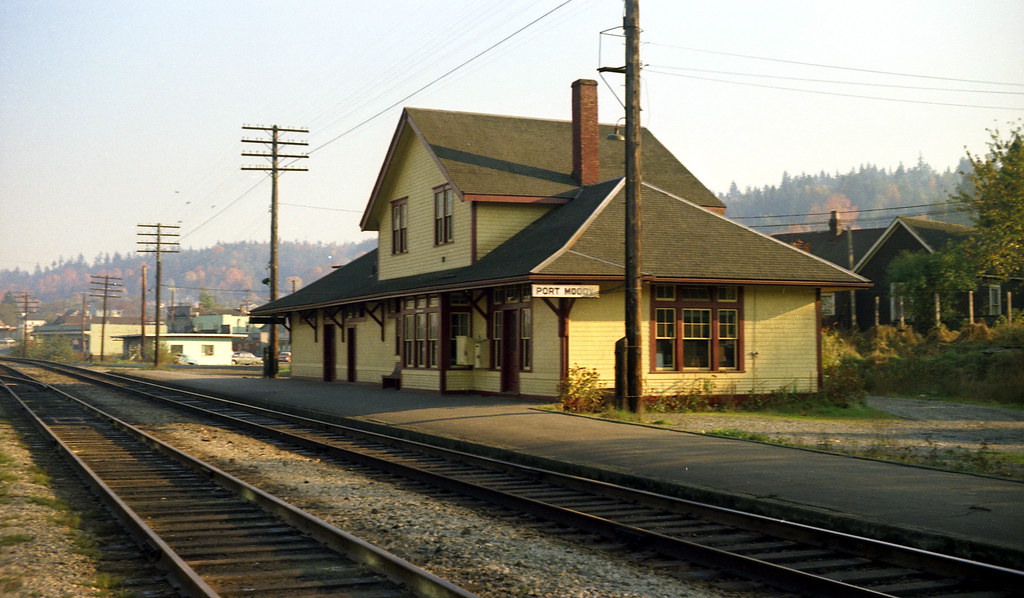 1967,
Rick Horne via Flicker
1967,
Rick Horne via Flicker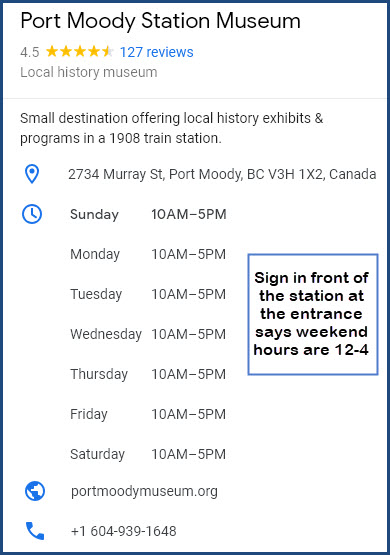
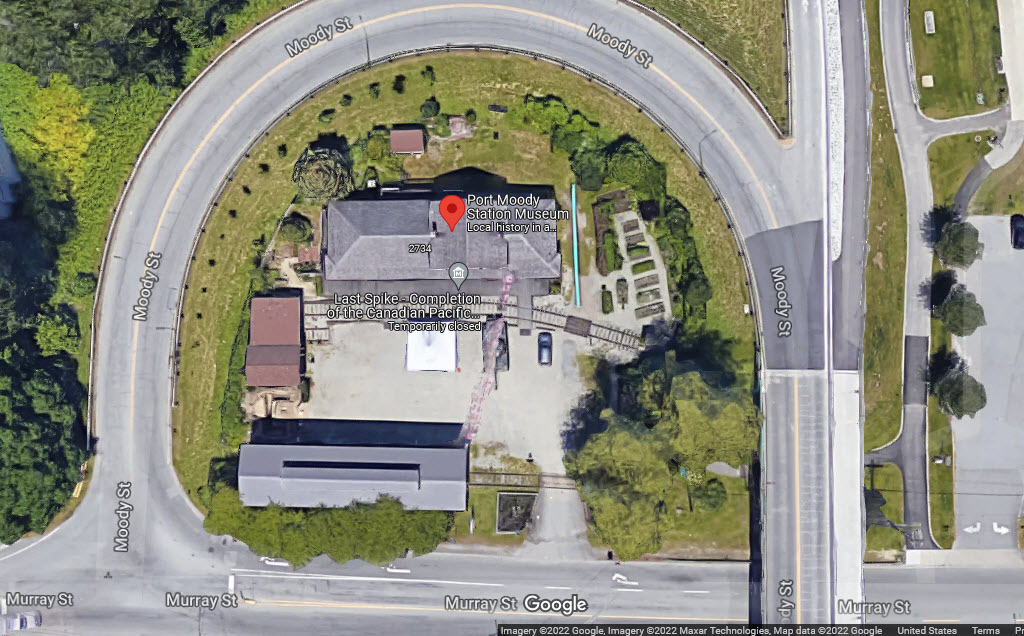
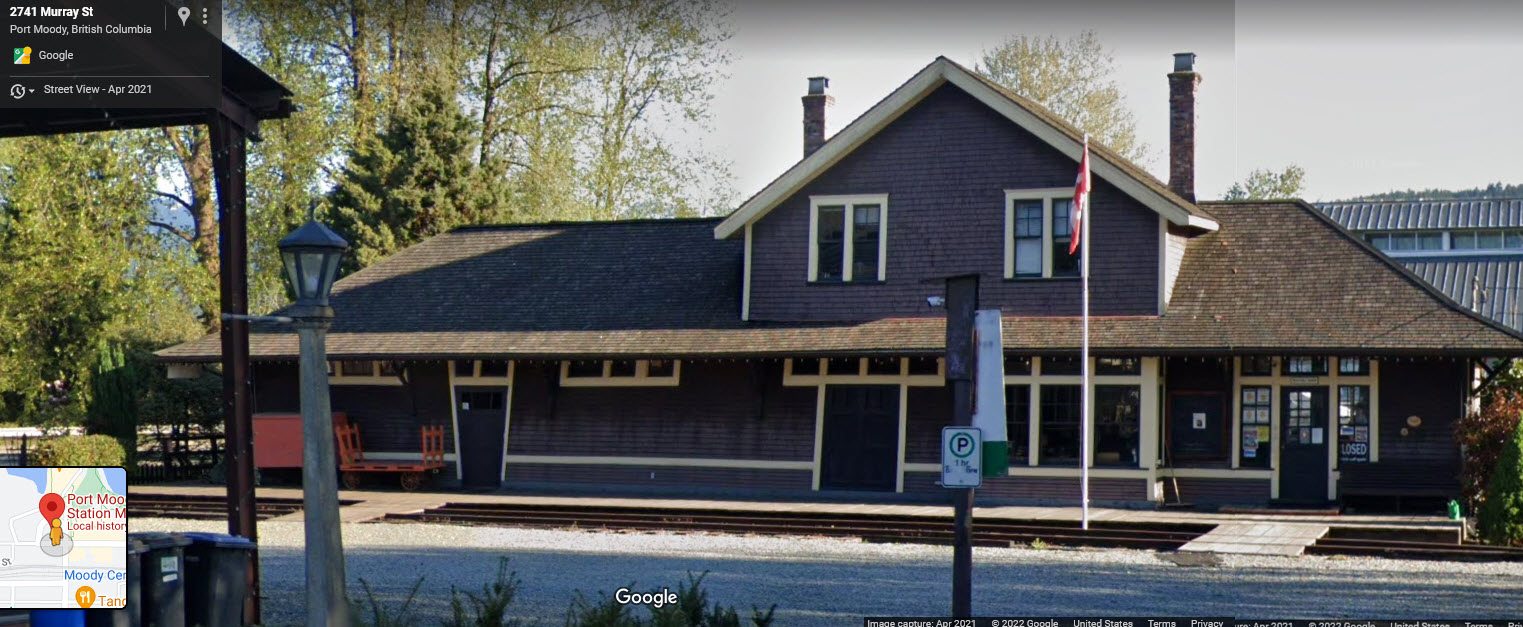
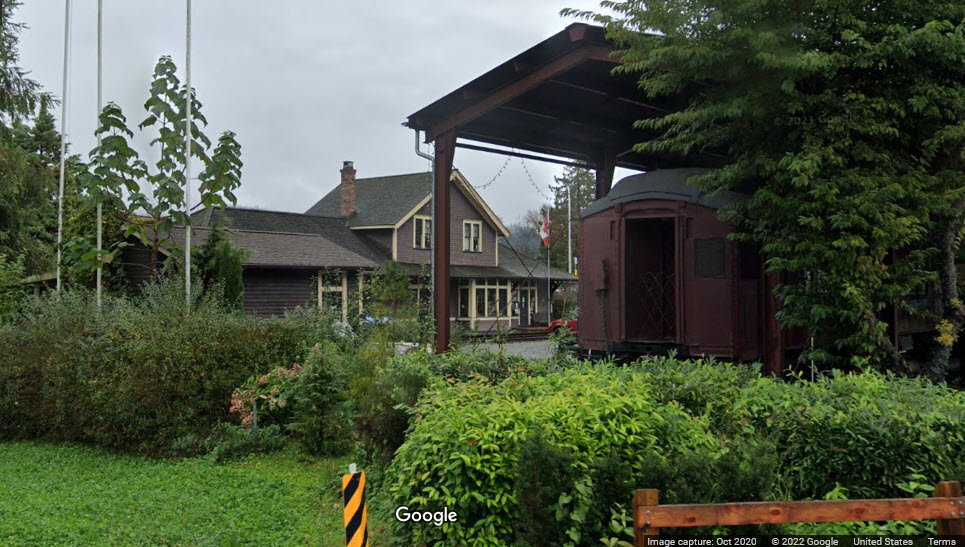
Trackless Trolley on Renfrew St, just after crossing the CPR tracks.
This is close to the Renfrew Millennium Line station, about 4.2km (2.6mi) from the Pacific Central Station:
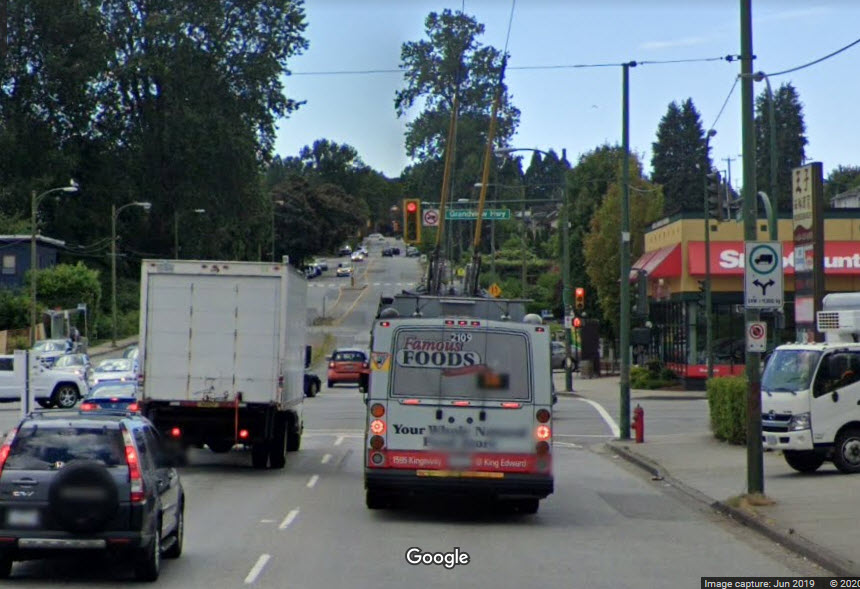
Mystery........
Why, when the U.S./Canada border was drawn up, did they leave the tip of the peninsula as part of the United States? They sure went to a lot of trouble to zig-zag thru the other islands to divide things up, so why didn't they do the same for this area????? There is no way to get to the U.S. except for going thru customs and driving thru Canada, and now that the two countries have gotten on "unfriendly" terms, requiring a passport to cross the border, it must be a freakin pain-in-the-ass experience!!! And before telephone companies went electronic, I betcha they just loved having a separate section of number 5 crossbars just for the few phones that were in the states, and they still probably charged it as an international call even if you were calling someone in a house just across the street, but in Canada. I dunno, I think we should give it to Canada and call it a day! :-) :-)
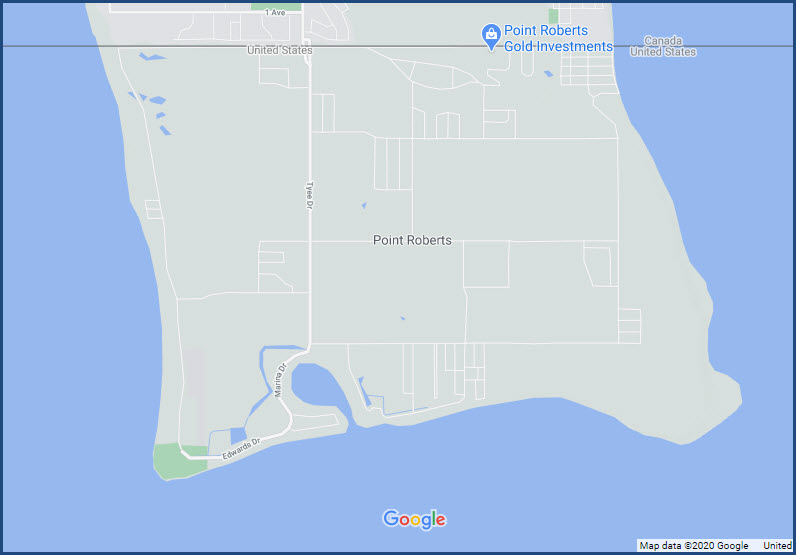
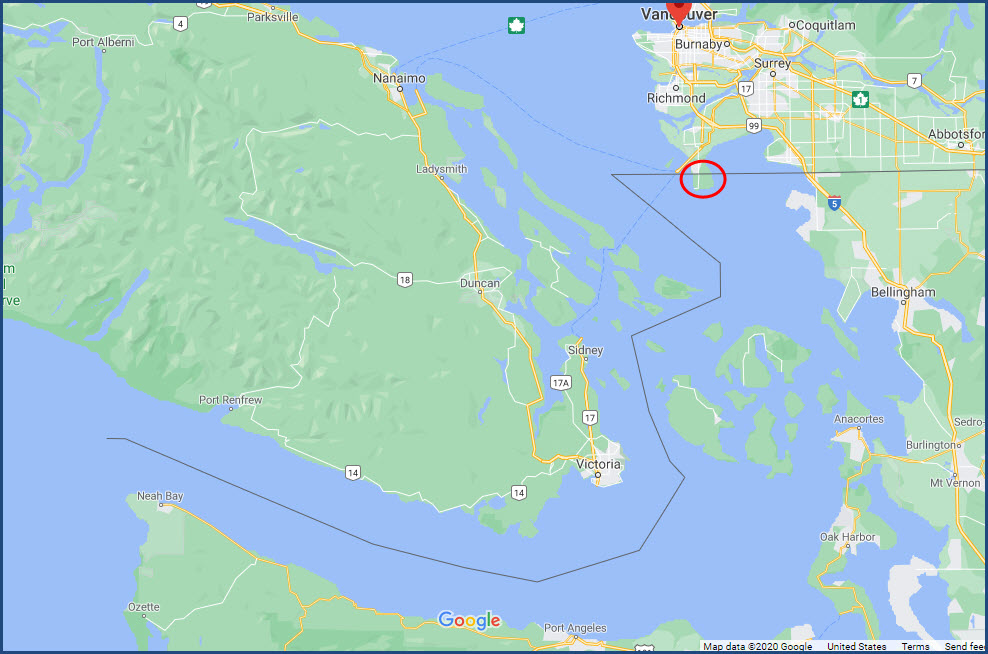
This is at the west end of the peninsula, the streetview is from 2011, so there is probably a fence there now with razor wire on it!
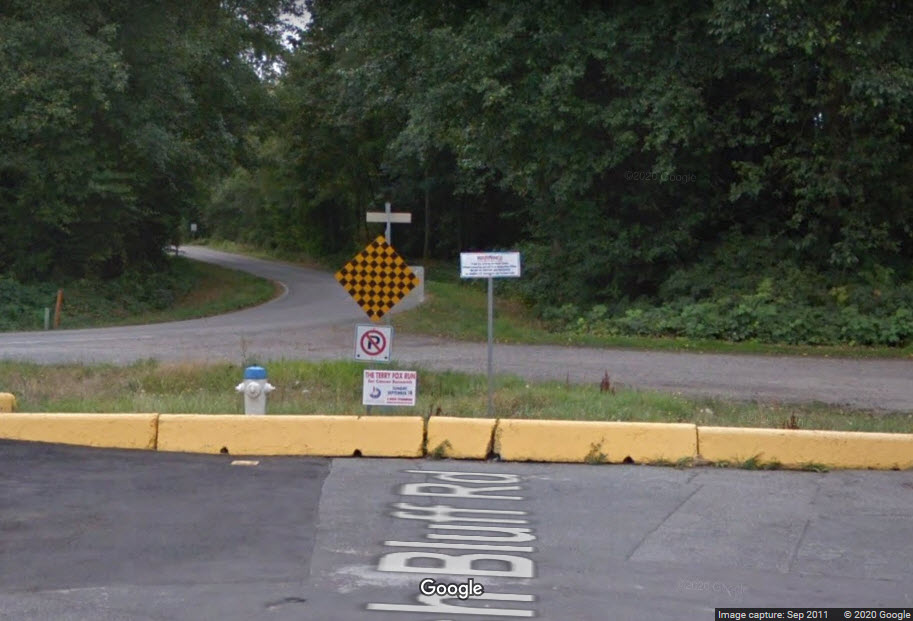
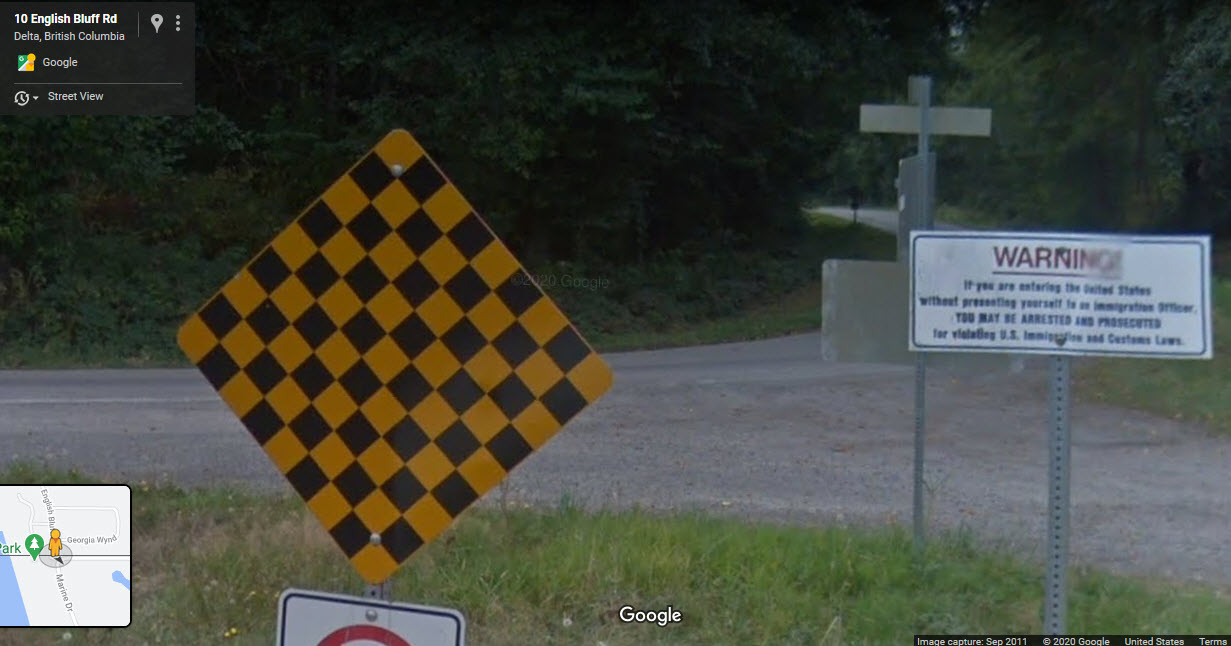
Here are a few signal locations I happened to comes across while looking for other things.....
Kaslo St / CN Freight Line
The tracks here go to single track to continue on into downtown. For a while, it parallels the Millennium Line.
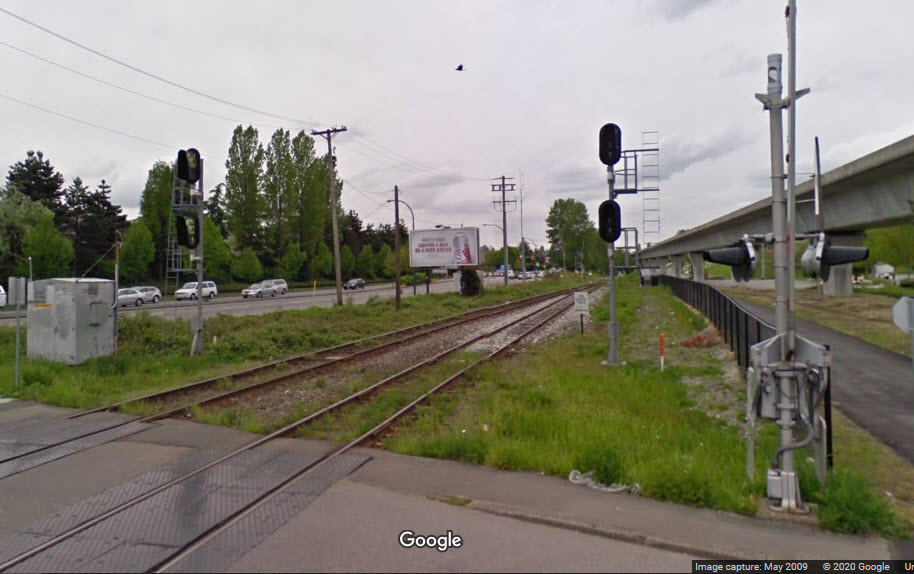
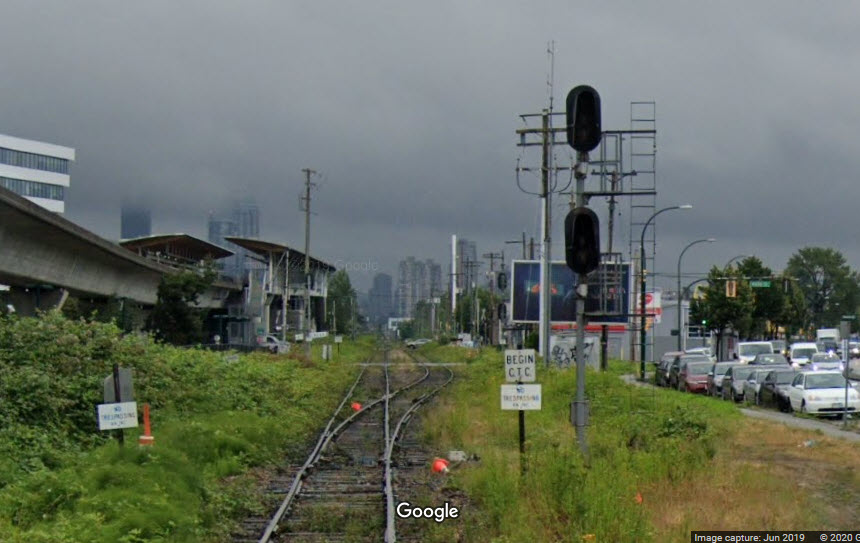
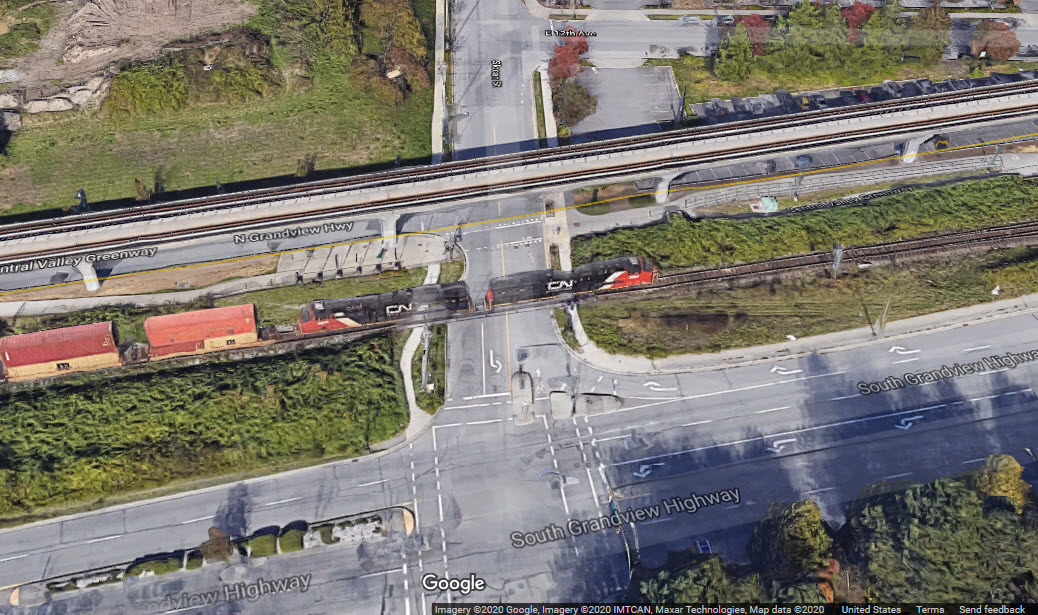
Disclaimers:
I love trains, and I love signals. I am not an expert. My webpages reflect what I find on the topic of the page. This is something I have fun with while trying to help others.
Please Note: Since the main focus of my two websites is railroad signals, the railfan guides are oriented towards the signal fan being able to locate them. For those of you into the modeling aspect of our hobby, my indexa page has a list of almost everything railroad oriented I can think of to provide you with at least a few pictures to help you detail your pike.
If this is a railfan page, every effort has been made to make sure that the information contained on this map and in this railfan guide is correct. Once in a while, an error may creep in :-)
My philosophy: Pictures and maps are worth a thousand words, especially for railfanning. Text descriptions only get you so far, especially if you get lost or disoriented. Take along good maps.... a GPS is OK to get somewhere, but maps are still better if you get lost! I belong to AAA, which allows you to get local maps for free when you visit the local branches. ADC puts out a nice series of county maps for the Washington DC area, but their state maps do not have the railroads on them. If you can find em, I like the National Geographic map book of the U.S..... good, clear, and concise graphics, and they do a really good job of showing you where tourist type attractions are, although they too lack the railroads. Other notes about specific areas will show up on that page if known.
Aerial shots were taken from either Google or Bing Maps as noted. Screen captures are made with Snagit, a Techsmith product... a great tool if you have never used it!
By the way, floobydust is a term I picked up 30-40 years ago from a National Semiconductor data book, and means miscellaneous and/or other stuff.
Pictures and additional information is always needed if anyone feels inclined to take 'em, send 'em, and share 'em, or if you have something to add or correct.... credit is always given! Please be NICE!!! Contact info is here
Beware: If used as a source, ANYTHING from Wikipedia must be treated as being possibly inaccurate, wrong, or not true.
RAILFAN GUIDES HOME
RAILROAD SIGNALS HOME
NEW SEP26/2020, MAR26/2022, DEC11/2022
Last Modified 11-Dec-2022
